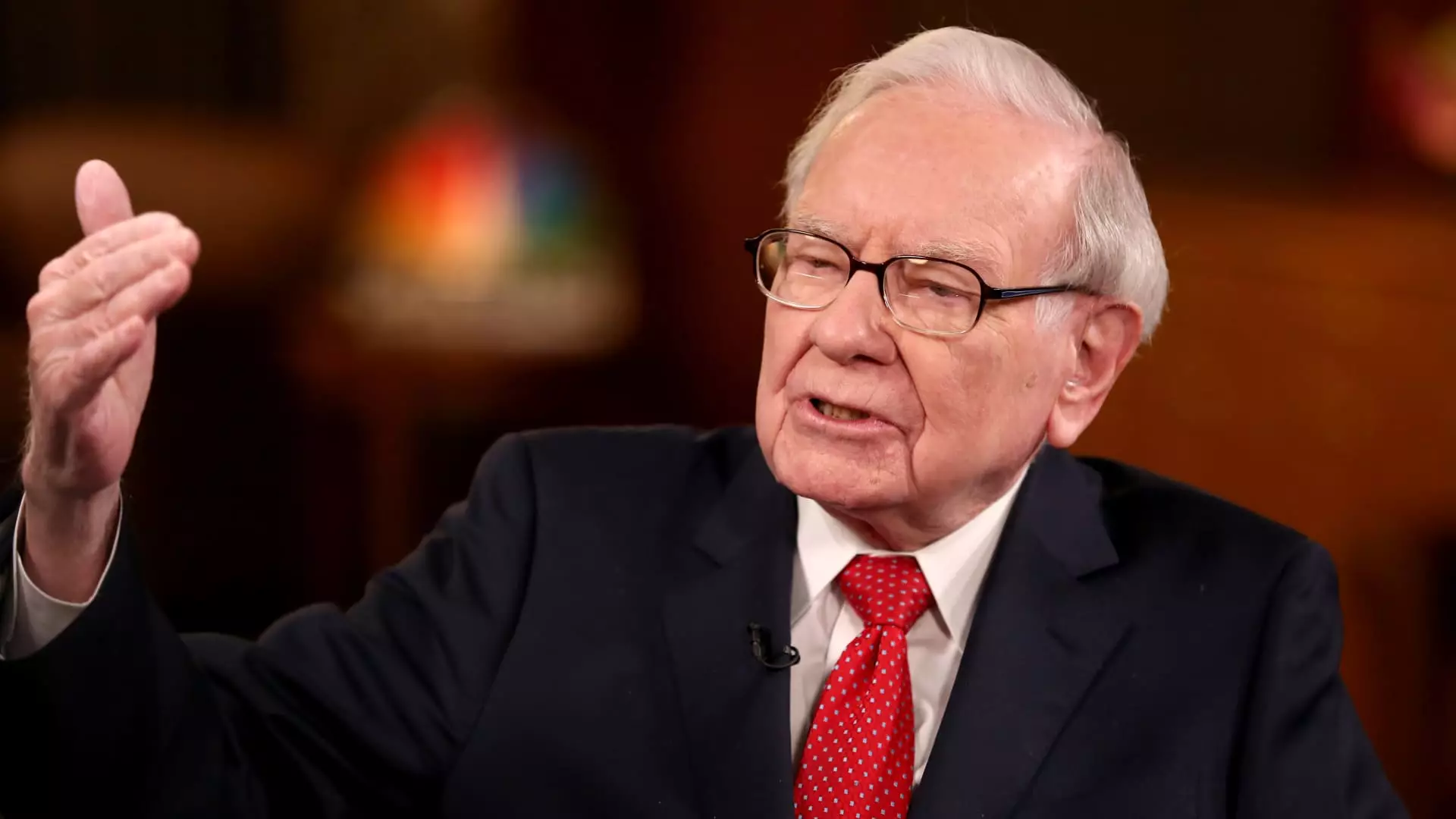In an era marked by rampant misinformation, one can interpret a renewed urgency surrounding the words and endorsements associated with figures like Warren Buffett. Recently, former President Donald Trump shared a sensational, yet completely unfounded, fan-made video on his social media platform, Truth Social, which insinuated that Buffett endorsed Trump’s supposedly strategic dismantling of the stock market. This twist of reality reveals a dangerous intersection of politics, finance, and social media that should concern all who value economic integrity and factual discourse. One cannot overlook the sheer irony in Trump’s alleged maneuverings—purportedly to lower interest rates—against the backdrop of an economy that thrives on stability and trust.
Buffett’s Response: A Call for Clarity
Buffett’s swift denial of the claims regarding his economic stance should serve as a wake-up call for the public and investors alike. His company, Berkshire Hathaway, categorically dismissed all assertions as false, and Buffett himself emphasized the importance of countering misinformation in today’s fast-paced digital landscape. At 94, Buffett has earned his stripes as a beacon of wisdom in financial matters, yet his insistence on not commenting on current market conditions prior to his annual meeting hints at a desire to remain above the fray. It also reinforces the idea that while political rhetoric can create volatility, sound economic practices often require a level of detachment and long-term vision—a philosophy that seems increasingly rare in today’s click-driven culture.
Trump’s Economic Gamble: Strategic or Reckless?
Delving deeper into Trump’s purported strategy raises serious questions about the implications of such tactics. Is the idea of crashing the stock market intentionally a savvy move to forge lower interest rates, or is it merely a gambler’s roll of the dice that threatens the foundation of economic stability? The concept of deliberately destabilizing a crucial financial market reflects a twist on typical economic practices that rely on growth and stability as opposed to calculated chaos. Buffett’s earlier commentary on tariffs as “an act of war” surfaces here, pointing toward the ramifications that can arise from political motivations overshadowing sound economic principles.
Historical Context and Economic Consequences
Throughout history, financial markets have responded not only to policies but also to the collective psyche of investors influenced by high-profile figures. The alarming potential of a trade war, as Buffett warned, can pave the way for disastrous outcomes globally. Trump’s administration had already seen significant pushback from economists regarding trade conflicts, with Buffett suggesting that free trade leads to better living conditions universally. It seems clear that engaging in economic chess while disregarding potential fallout is fraught with peril and can have dire consequences—not just domestically but worldwide.
Buffett’s Financial Strategy Amidst Uncertainty
Despite the chaos unfurling at the hands of political turmoil, Buffett’s strategy of hoarding cash—over $300 billion—is noteworthy. At a time when many investors might be pursuing wild returns in a bull market or diving into speculative ventures, Buffett’s position underscores a conservative, yet intelligent, approach to investment during uncertain times. As markets react unpredictably to political maneuvers, having liquidity becomes an essential safety net. Indeed, Buffett’s defensive posture serves as a testament to the prudent philosophy of respecting market dynamics while also maintaining readiness for advantageous opportunities.
The Disconnect Between Political Rhetoric and Economic Reality
At the heart of the situation is a profound disconnect between what is disseminated through political channels and the empirical realities faced by individuals and businesses alike. The conflation of financial strategy with political theatrics creates undue stress on markets and misleads the public. As social media platforms continue to propagate misinformation, it becomes increasingly essential for leaders across sectors to cultivate transparency and honesty. Warren Buffett’s recent assertion that “the tooth fairy doesn’t pay” taxes brilliantly captures the absurdity of misleading financial rhetoric while emphasizing the pressing need for each stakeholder to navigate the market based on reliable data rather than sensational stories.
In this unfolding drama, clarity and integrity are critical, and the need for leaders, whether in finance or politics, to model these values has never been more urgent.

Leave a Reply